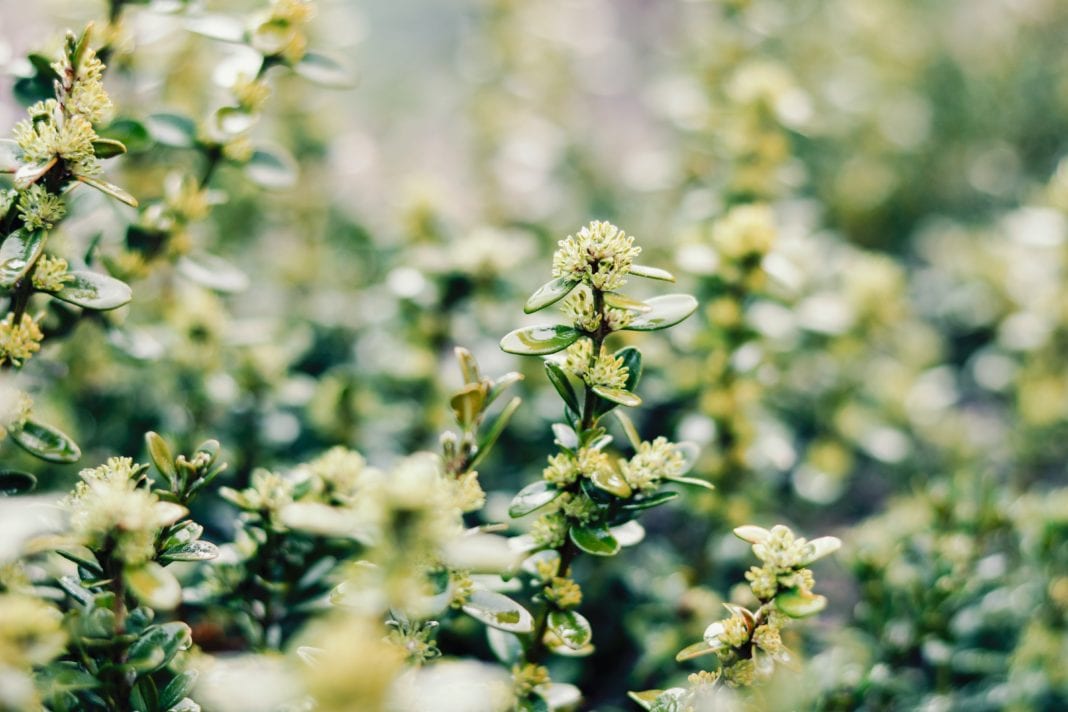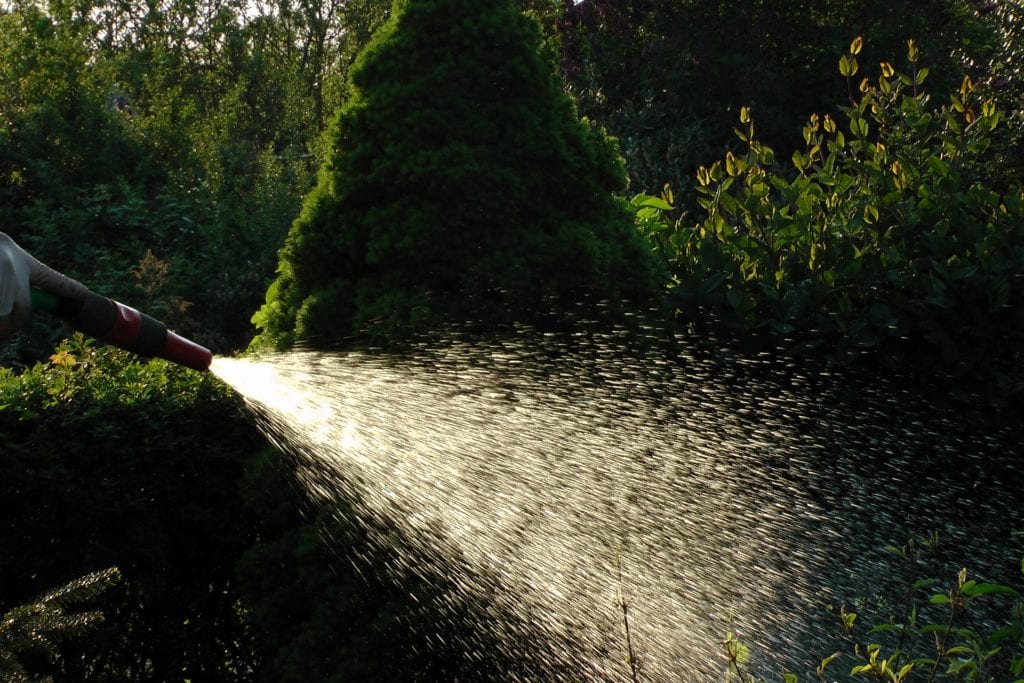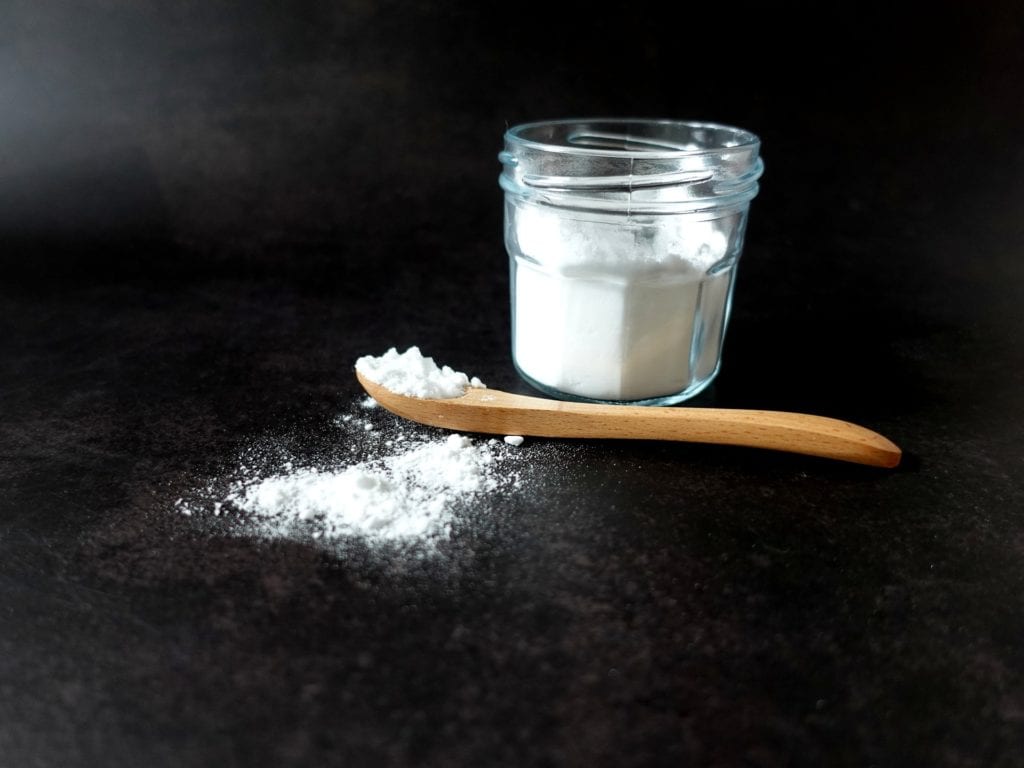The boxwood borer is one of the most dangerous pests that can find itself in your garden. If you grow a boxwood, you will have to do a lot of work, which will be ruined by this voracious caterpillar.
If you do not want to immediately resort to chemical means against the boxwood borer and prefer to act in a natural way against the pest, the following home remedies could be helpful. To be honest, they are not as effective as expensive pesticides, but they can still drive back the caterpillar, so that the boxwood is safe again.

Learn which home remedies are proving effective against box elder borer.
Contents
Algal lime for a stronger boxwood.
The boxwood borer always poses a particularly great danger when the plants are already weakened. If their health is not good, the extent of the damage caused by the box borer is much more drastic.
To strengthen the boxwood, algal lime proves to be an effective remedy. This should be spent on the boxwood as part of the usual spring care in April or May. The active ingredients it contains strengthen plant health and leave less room for pests to feast on the boxwood.
In practice, the algal lime proves useful not only as a preventive measure. You can also apply it to an already infested boxwood. The algal lime has a strengthening effect and it has been shown that fewer caterpillars are formed. This prevents further infestation and the boxwood is exposed to less damage.
If you notice places that have been very affected by the boxwood borer, then you can dust them again with the algal lime. However, you should not overdo it with the agent, because there are also critical voices. According to them, a longer and more frequent application of the algal lime is harmful to the boxwood. So see for yourself how your boxwood absorbs the agent and apply the algal lime conscientiously.
Spray the boxwood borers with water

If there are pests on your plants, you can make the effort yourself and remove them. If you have several boxwoods in your garden and there are a large number of caterpillars on the plants, manual collection could involve a lot of effort.
Spraying down the caterpillars proves to be more practical. For this purpose, it is best to take a high-pressure cleaner or a weed sprayer and go specifically in search of the caterpillars. Place a fleece or tarp under the boxwoods so you can see the results immediately after application and remove the caterpillars.
Adjust the pressure so that the caterpillars can no longer hold onto the shoots, but the boxwood will not be damaged. Shoot the water at the caterpillars from slightly above so they land specifically on the tarp. The boxwood borer is relatively fast on the ground. Therefore, it is worth taking a break from time to time to pick up the fallen animals.
Similar to aphids, shooting them down works quite well. However, you will have to repeat this method more often until there are no more caterpillars on the tree. If a pressure washer is available to you, use the power of water to take immediate action against box elder borer.
Kill boxwood borers with garbage bags
As another home remedy, trash bags can show their useful side. Do not be afraid to kill the boxwood borers, then this is an effective way to sustainably rid the boxwood of the voracious caterpillars.
The application of the garbage bags turns out to be quite simple. If the day is predicted to be bright sunshine, then in the morning put the black garbage bags over the boxwood. The goal here is not that the caterpillars suffocate, but that they do not survive the hot temperatures.
This is because such heat develops under the garbage bags during the day that the caterpillars will not survive it. The voracious animals do prove resistant to predators, due to the body’s own toxin. But in hot temperatures, they more quickly lose out.
The boxwood survives this treatment better. The hot temperatures are less of a problem for it. However, the garbage bags over the plant, of course, is not a permanent condition. For the boxwood to grow optimally, it needs direct sunlight. After a sunny day, most of the caterpillars should have fallen victim to the heat, so the application does not have to be carried out for too long.
Trash bags are only an effective home remedy for boxwood borers if the trees are in a sunny location and the weather cooperates. If the temperatures are not sufficient, you will have to use other means to control the box elder borer.
Baking soda against the boxwood borer

Baking soda has many uses in the garden and is shown to be effective for some problems. The baking soda is considered an effective home remedy against aphids and in this way protects your plants. The aphid does not tolerate the baking soda and after a short time death occurs.
The baking soda is also helpful against some fungal diseases. Thus, it is worth trying to find out how the boxwood borer reacts to this home remedy.
However, after the application, disillusionment sets in. What helps against aphids, proves to be little effective against the boxwood borer. The latter seems to simply ignore the home remedy and continues its feeding activity unbridled.
If you want to effectively combat the boxwood borer, baking soda cannot be recommended as a home remedy. Rather, rely on other means that provide better protection for the boxwood.
Collect the caterpillars by hand
If you have detected the infestation at an early stage, you can take control of the boxwood borer into your own hands. Contrary to popular belief, the caterpillar is harmless to humans. It does contain a lot of poison, which accumulates in the body through ingestion of the boxwood, but this is more of a problem for predators. Birds eat the boxwood borer and immediately spit out the animal because of its noticeable taste.
If you collect the borer by hand, you will not come into contact with the toxin. So you can touch the caterpillar with your bare hand and deposit it in a bucket. Of course, it is more hygienic if you use gloves.
How you proceed with the collected caterpillars depends on their age. If they are still young, you can dispose of them in the organic waste garbage can or compost. There the caterpillars do not survive and cannot develop into moths.
If the caterpillars are in an advanced stage, you should put them in a closed bag and place them in the sun for a few days. The hot temperatures will cause the caterpillars to die, so they will not grow into butterflies. In this way, you will ensure that a new generation does not emerge, which will settle on the boxwoods and lay new eggs.
Regularly inspect the boxwood and if you discover the first caterpillars, collect them. This is a good way to contain the infestation and keep the damage in check.
Using home remedies against the boxwood borer
The boxwood borer is known for its extensive voracity. At the first sign of the caterpillar, it is advisable to fight it with all means. Natural enemies are rare, because the caterpillar ingests the poison of the boxwood and only a few birds have no problems with this taste.
If you would like to first try yourself with simple home remedies, whether the boxwood borer can be effectively driven away, then you have learned here effective methods. Of course, it is better if the caterpillars do not settle on the box trees in the first place. To do this, set traps in the garden and, if necessary, cover the boxwood with netting so that the moths cannot lay eggs on the plant.
Together, the precautions and home remedies prove to be a good choice to protect the boxwood in a natural way. However, if the infestation is too severe, you can specifically use the pesticides that are directed against the boxwood borer.

